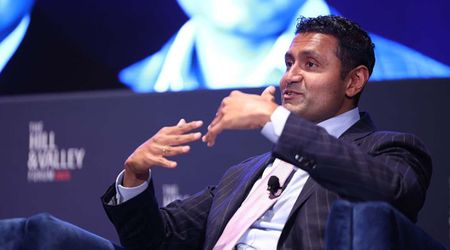How Employers Are Addressing Gen Z’s Growing Financial Needs and Preferences

When it comes to financial planning, Gen Z is emerging as a cohort with a distinct focus on long-term stability, including a keen interest in financial literacy, savings, and a strong inclination towards employer-backed retirement benefits. The Transamerica Institute reports that members of Gen Z foresee spending approximately 30 years in retirement, underscoring their forward-looking financial mindset. However, a significant 57% within this demographic believe they should be saving more for their retirement.

Considering Gen Z's interest in employer-provided retirement benefits, employers can capitalize on this inclination to deepen their commitment to long-term financial well-being. Transamerica's findings show that two-thirds of Gen Z members are already engaged in savings through employer-sponsored retirement plans or alternative avenues. Moreover, a substantial 70% express interest in customizing their benefits, revealing an opportunity for employers to align offerings with these preferences.
Yet, despite their interest, only 36% of Gen Z participants feel their opinions matter concerning employer benefits, and merely 38% believe the benefits are worth the cost.

A major concern for Gen Z is student loan debt. A survey reveals that a considerable portion of this demographic seeking employer assistance with their student loans. Recognizing this trend, the SECURE 2.0 Act, enacted in December 2022, offers a potential solution. Employers can now provide matching contributions to employees' retirement accounts based on qualified student loan payments.
While not mandatory, this benefit presents an attractive option for employers aiming to distinguish themselves and attract top talent in a competitive market.

Abbott Laboratories has implemented the Freedom 2 Save program, an innovative approach to address student loan debt. Employees qualifying for the company's 401(k) and contributing 2% of their pay towards student loans receive an equivalent amount to Abbott's 5% 401(k) match, channeled directly into their retirement accounts. This unique initiative recognizes the changing priorities of new graduates.
Fidelity has also stepped into the realm of student loan benefits, unveiling "Student Debt Retirement," inspired by SECURE 2.0. This offering allows employers to match employees' student loan payments with contributions to their retirement plans, adding another layer to the financial support landscape.
As of the latest report, student loan debt in the United States stands at a staggering $1.727 trillion. Notably, 2023 marked a significant milestone as it witnessed the first-ever annual decline in student loan debt. The federal loan balance alone contributes substantially, reaching $1.602 trillion and making up a dominant 92.8% of the entire student loan debt landscape.
A substantial 43.2 million borrowers are shouldering federal student loan debt burdens, with an average balance of $37,088. When factoring in private loan debt, the total average balance escalates to an estimated $39,981. Projections for 2024 suggest that the trend of declining student loan debt will persist, offering a glimmer of relief to borrowers

Bill Gimbel, President of LaSalle Benefits, suggests providing access to a financial planner and online financial services and facilitating loan payments through automatic payroll deductions. These offerings cater to Gen Z's desire for holistic financial support beyond traditional benefits.
"It is vital to understand their investing decisions and to provide them with the educational tools to prepare for those decisions," said FINRA Foundation President Gerri Walsh.






















